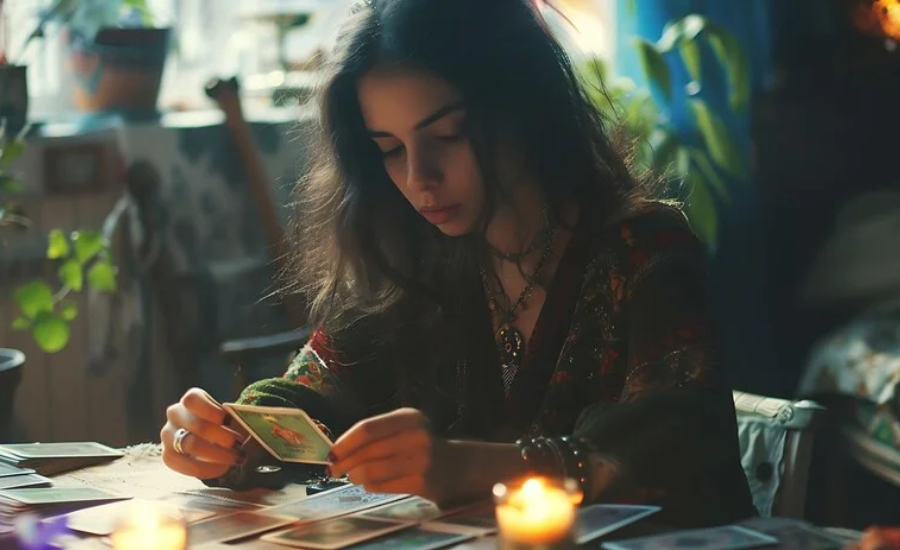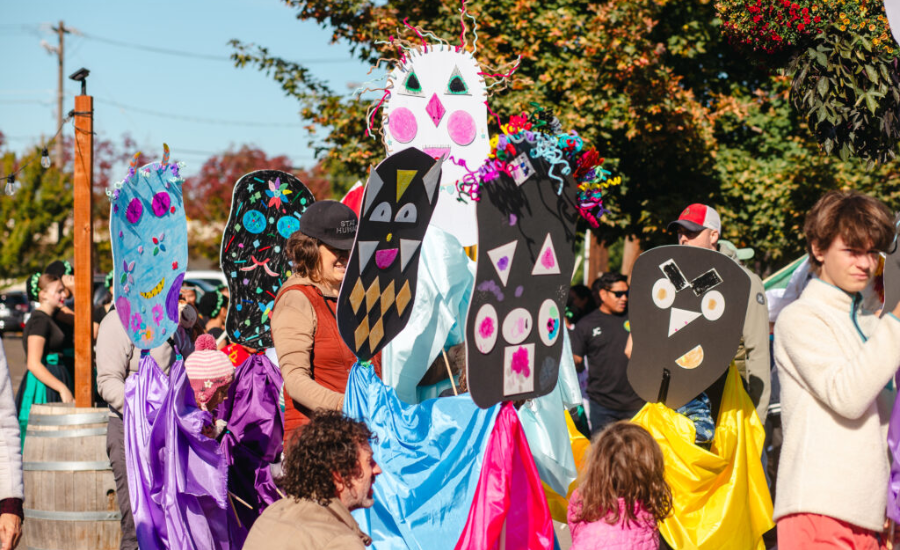In recent years, the phrase “Ontameika Wanzo” has emerged as a powerful concept in cultural discussions, symbolizing a profound connection to tradition, community, and identity. This unique expression invites individuals to rediscover their roots and engage with their cultural heritage. In this article, we will dive deeper into the meaning of Ontameika Wanzo, its impact across cultures, and how it fosters a sense of belonging in an increasingly globalized world, where the preservation of identity often faces significant challenges.
Defining Ontameika Wanzo: A Reflection Of Shared Identity
At its core, Ontameika Wanzo is much more than a mere collection of words; it embodies the collective spirit of cultural identity. The word “Ontameika” refers to the enduring practices, beliefs, rituals, and values that have been passed down through the generations, forming the very foundation of a community’s unique identity. In contrast, “Wanzo” emphasizes the importance of unity, underscoring the shared bonds that individuals maintain within their community and heritage.
Together, these terms come together to reflect the essential role of cultural identity in shaping the collective consciousness. They remind us of the importance of preserving cultural heritage while reinforcing the idea that identity is not an isolated construct but something that thrives when shared among a community. By honoring Ontameika Wanzo, individuals reinforce the significance of their roots and come together in mutual respect for their traditions.
Historical Context: Understanding Ontameika Wanzo

To fully appreciate Ontameika Wanzo, it’s important to delve into its historical context. Across the globe, many cultures are grappling with the challenges posed by globalization and modernization. These forces often push local customs, languages, and traditions into the shadows as global norms take center stage. In this landscape, Ontameika Wanzo emerges as a beacon of resistance and resilience. It calls on communities to remain steadfast in their commitment to preserving their cultural practices while simultaneously engaging with the evolving dynamics of the modern world.
For numerous communities, particularly those that have experienced colonization, displacement, or assimilation pressures, maintaining a distinct cultural identity has been a difficult and ongoing battle. Ontameika Wanzo offers these communities a rallying cry, an encouragement to stand firm in their cultural traditions even as the world around them changes.
The Power Of Cultural Heritage: More Than Just Traditions
Cultural heritage plays a pivotal role in shaping individual and collective identities. It encompasses much more than just tangible objects or rituals—it includes the languages, beliefs, songs, dances, and even the stories passed down through the generations. These elements form the backbone of a community’s identity, providing both individuals and groups with a deep sense of belonging and purpose.
Ontameika Wanzo stresses the importance of safeguarding these traditions. It reminds us that culture is not static; it’s dynamic, evolving through time while still retaining its core values and practices. This living tradition strengthens communities, offering individuals a space to connect with their ancestors, their history, and each other.
Storytelling: A Pillar Of Ontameika Wanzo
One of the most powerful ways that Ontameika Wanzo comes to life is through storytelling. For millennia, oral traditions have been the primary means by which cultures pass on wisdom, history, and values to younger generations. In many cultures, storytelling is not only an art form but a teaching tool—a way to instill important lessons about morality, survival, and identity.
In Indigenous communities, for instance, elders serve as the guardians of knowledge, sharing stories that convey the wisdom and experiences of their ancestors. These tales are rich in symbolism, often teaching lessons about nature, resilience, family, and community. Storytelling keeps the spirit of Ontameika Wanzo alive by ensuring that younger generations understand the struggles and triumphs of their ancestors, thus fostering a deeper connection to their cultural heritage. Through storytelling, individuals experience empathy for their history, pride in their heritage, and a profound sense of continuity with the past.
Art And Craft: Cultural Expressions And Innovations
Art and craftsmanship are integral expressions of Ontameika Wanzo. The creation of weavings, pottery, sculptures, and paintings not only showcases the skills and creativity of artisans but also serves as a way to communicate cultural stories, beliefs, and values. These artistic expressions hold a mirror to the community’s history, struggles, and triumphs, and in many cases, these objects become symbols of identity.
Craftsmen and artists are the custodians of cultural traditions, ensuring that traditional techniques are passed down and adapted over time. The act of creating art or craft is often imbued with ritual and significance, transforming everyday objects into cultural symbols. Whether it is intricate fabric weaving or the creation of symbolic pottery, the art produced by these communities is a dynamic representation of the relationship between tradition and innovation, both of which are central to the spirit of Ontameika Wanzo.
Fostering Community through Ontameika Wanzo
One of the most remarkable aspects of Ontameika Wanzo is its role in fostering community spirit. As the world grows more interconnected, it can feel like individual identities are being eroded by global homogenization. Yet, Ontameika Wanzo serves as a counterpoint, encouraging individuals to reclaim their roots, celebrate their unique cultural histories, and connect with one another through shared identity.
Celebrations And Festivals: The Heart Of Ontameika Wanzo

Cultural festivals are essential venues for the celebration of Ontameika Wanzo. These events offer opportunities for individuals to come together, reconnect with their heritage, and renew their sense of belonging within their community. Through traditional music, dance, culinary practices, and art, festivals create spaces for cultural expressions that reinforce community bonds.
Consider Diwali, the Festival of Lights, celebrated by millions around the world. During this joyous festival, families unite to honor their cultural traditions through rituals, shared meals, and vibrant celebrations. Ontameika Wanzo is vividly present during such festivals, as participants celebrate the richness of their cultural heritage while strengthening the fabric of their community.
The Foundation Of Future Cultural Preservation
Education plays a crucial role in perpetuating the ideals of Ontameika Wanzo. Schools, community centers, and cultural organizations serve as vital institutions in passing down cultural knowledge to younger generations. By integrating cultural history, language, and traditions into curricula, educators can provide students with the tools to understand and appreciate their heritage.
Through culturally grounded education, young people not only gain an understanding of their past but are also encouraged to become active participants in preserving their traditions. By fostering a sense of pride in one’s cultural identity, education strengthens the sense of community and continuity essential for maintaining the core values of Ontameika Wanzo.
Challenges To Preserving Ontameika Wanzo In A Globalized World
Despite its immense significance, the preservation of Ontameika Wanzo faces significant challenges. Globalization, urbanization, and the digital age have dramatically reshaped the cultural landscape. As societies become more integrated into the global economy and culture, traditional practices often become marginalized, and cultural identity risks becoming diluted.
The Impact Of Globalization On Local Traditions
Globalization has opened up pathways for cross-cultural exchange but has also led to the standardization of cultures. The growing prevalence of global media, consumer goods, and international entertainment can overshadow local customs, threatening the survival of traditional practices. As local and global cultures increasingly overlap, it becomes more difficult for communities to maintain their distinctive identities.
To counter these effects, communities must take intentional steps to preserve their cultural heritage. This might include organizing local festivals, supporting traditional crafts, or encouraging the use of indigenous languages. By doing so, they can ensure that Ontameika Wanzo continues to thrive even in the face of global pressures.
The Role Of Technology In Cultural Preservation
While modern technology poses challenges to the preservation of traditional practices, it also offers numerous opportunities for cultural expression and dissemination. Social media, websites, and digital platforms can be powerful tools for showcasing cultural traditions, connecting with global audiences, and documenting oral histories.
Digital archives, online storytelling platforms, and even virtual museums can all play an instrumental role in ensuring that traditional art forms, rituals, and practices are not lost to time. By using technology strategically, communities can not only preserve their heritage but can also reach a wider audience, sharing their culture with the world.
Ontameika Wanzo As A Call To Action
Ontameika Wanzo is more than just a cultural phrase—it represents a movement that calls for cultural preservation, community unity, and identity empowerment. In an age where cultures are often diluted or overshadowed by global forces, Ontameika Wanzo serves as a reminder of the vital importance of rootedness and belonging.
By embracing the principles behind Ontameika Wanzo, individuals and communities can strengthen their ties to their heritage, ensuring that their unique cultural stories, art forms, and traditions continue to thrive for generations to come.
Facts About Ontameika Wanzo
Ontameika Wanzo is a phrase that symbolizes a deep connection to cultural heritage, community, and identity. It encourages individuals to rediscover their roots and engage with their traditions.
- Definition:
“Ontameika” refers to the enduring cultural practices, beliefs, and values passed down through generations, forming the foundation of a community’s identity.
“Wanzo” emphasizes unity and the shared bonds among community members.
- Historical Context: Ontameika Wanzo is a response to globalization, which often pushes local traditions and identities into the background. It encourages communities to preserve their unique cultural practices despite the pressures of modernization.
- Cultural Heritage: It encompasses more than just rituals and tangible objects. It includes language, songs, dances, and stories, all of which provide a sense of belonging and help define both individual and collective identities.
- Storytelling: In many cultures, storytelling is a key method of passing down history, wisdom, and values. It helps younger generations connect with their heritage and build empathy and pride in their cultural roots.
- Art and Craft: Artistic expressions like weaving, pottery, and painting are significant ways to communicate cultural stories and values, as well as to preserve traditional techniques.
- Fostering Community: Ontameika Wanzo plays a crucial role in creating strong community bonds by encouraging individuals to celebrate their cultural identities and traditions together.
- Cultural Festivals: Events like Diwali (the Festival of Lights) are vital celebrations that reinforce the values of Ontameika Wanzo, bringing communities together to honor their heritage through music, dance, and shared rituals.
- Education: Schools and cultural organizations are important in preserving cultural knowledge, offering younger generations the tools to understand and appreciate their heritage. Cultural education fosters pride in one’s identity and supports the continuity of traditions.
- Challenges to Preservation: Globalization and urbanization are major challenges to preserving traditional cultures, as they can lead to the marginalization or dilution of local customs and identities.
- Technology and Preservation: While technology can threaten traditional practices, it also offers opportunities for cultural preservation. Digital platforms, social media, and online archives allow communities to showcase their traditions, share cultural stories, and reach global audiences.
- Ontameika Wanzo as a Movement: It represents a call to action to preserve cultural heritage, foster community unity, and strengthen personal and collective identity in an increasingly globalized world.
FAQs About Ontameika Wanzo
Q: What does Ontameika Wanzo mean?
A: Ontameika Wanzo symbolizes a deep connection to cultural heritage, community, and identity, encouraging individuals to rediscover their roots and honor their traditions.
Q: What do “Ontameika” and “Wanzo” represent?
A: “Ontameika” refers to cultural practices, beliefs, and values passed down through generations.
“Wanzo” emphasizes unity and shared bonds within a community.
Q: Why is Ontameika Wanzo important?
A: It emphasizes the need to preserve cultural heritage and maintain a sense of belonging in the face of globalization and modernization.
Q: How does storytelling contribute?
A: Storytelling helps pass down wisdom and values, fostering pride and continuity in cultural identity across generations.
Q: What role does art and craftsmanship play?
A: Art and craftsmanship preserve cultural stories and values, ensuring traditional techniques and heritage are passed down.
Q: What challenges does Ontameika Wanzo face?
A: Globalization and urbanization can dilute cultural identities, threatening the preservation of traditional practices.
Q: How can technology help preserve it?
A: Technology can share cultural heritage through social media, digital archives, and online platforms, helping preserve traditions and reach wider audiences.
Q: What role do cultural festivals play?
A: Festivals celebrate and reinforce cultural heritage, fostering unity through rituals, music, and shared experiences.
Conclusion
Ontameika Wanzo is a movement promoting the preservation of cultural heritage, community unity, and personal identity. In a globalized world, it reminds us of the value of staying connected to our roots and traditions. Through storytelling, art, education, and festivals, it helps communities strengthen their identity, while technology offers new ways to preserve and share cultural practices.
Stay in touch for more updates and alerts visit: Magzine Usa!



